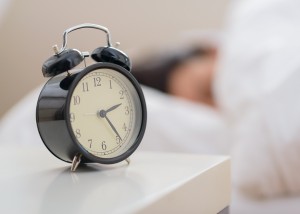Study: Sleeping less than 5 hours, or more than 9, can lead to cognitive decline
 Too little sleep, and too much, affect memory (Harvard Health Blog):
Too little sleep, and too much, affect memory (Harvard Health Blog):
“A group of women taking part in the Nurses’ Health Study were asked about their sleep habits in 1986 and 2000, and were interviewed about memory and thinking skills three times over a later six-year period. Devore and her colleagues observed worse performance on brain testing among women who slept five hours or fewer per night or nine hours or more, compared with those getting seven to eight hours of sleep a night.
How might sleep affect memory? People who are persistently sleep deprived are more likely to have high blood pressure, diabetes, and narrowed blood vessels. Each of these can decrease blood flow inside the brain. Brain cells need a lot of oxygen and sugar, so blood flow problems could affect their ability to work properly…Another possibility is a two-way street between sleep and memory: sleep quality may affect memory and thinking, and the brain changes that cause memory and thinking problems may disturb sleep.”
Study: Sleep Duration in Midlife and Later Life in Relation to Cognition (Journal of the American Geriatrics Society). From the abstract:
- Objectives: To evaluate associations between sleep duration at midlife and later life and change in sleep duration over time and cognition in older women.
- Results: Extreme sleep durations in later life were associated with worse average cognition…For example, women sleeping 5 h/d or less had worse global cognition than those sleeping 7 h/d, as did women sleeping 9 h/d or more; differences were equivalent to nearly 2 additional years of age…Women whose sleep duration changed by 2 h/d or more over time had worse cognition than women with no change in sleep duration. Sleep duration was not associated with trajectories of cognitive function over 6 years, which might be attributable to short follow-up for detecting cognitive decline.
- Conclusion: Extreme sleep durations at midlife and later life and extreme changes in sleep duration over time appear to be associated with poor cognition in older women.


